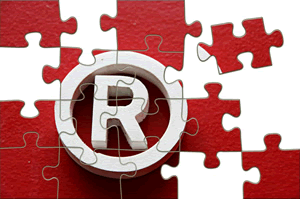Patents
What is a Patent?
A patent is the exclusive right granted by a government to someone who invents or discovers something new and useful. This can be a product, process, or new and useful improvement on an existing product or process. Patents typically last 20 years from their initial filing date.
Patent Law
Patent law protects the patent holder by prohibiting others from making, using, selling, offering for sale, or importing a patented invention/product/process for the length of the patent. However, like most property, the owner of the patent may sell, transfer, mortgage, or license the patent to another.
Reasons to Patent
- To invent - patents provide economic incentives for efficient research and development
- To share inventions - without patent protection, many inventors would not reveal innovations which could help the Greater Good
- To encourage investment - without patent protections, the risk of unlicensed copies would stunt experimentation, production, and sale of the invention
- To encourage innovation -- improves on previous designs and patents
Patent Enforcement
Patent enforcement is achieved through civil suits where the patent holder seeks monetary damages for Infringement and prohibits further infringement. In order to prove infringement, the patent holder must prove the validity of the patent.
How To Patent
Among other things, registering a successful patent application requires proof of patentability. The elements of patentability include:
- Patentable subject material
- Something in the patent must be new or novel
- Must contain an inventive step or non-obvious change or improvement
- Must be useful
Documenting the invention of the product or process is also important in demonstrating the unique nature of the invention.
Patent Licensing
Many infringement cases are resolved through licensing agreements between both sides. Licensing allows the potential infringer the right to use the patent for a fee or royalty. Licensing and cross-licensing allows for freedom of discovery in complex industries.
International Patents
Patents are territorial in nature. They're governed by national laws, but also by international treaty. The World Trade Organization is active in globalizing international patent law.
Currently, one of the international conventions establishing basic patent guidelines incorporated into most patent systems is the Paris Convention for the Protection of Industrial Property. In the US, Congress passed laws promoting "the progress of Science and Useful Arts," and established the US Patent and Trademark Office (USPTO).
Patent Attorneys
Patent law is wide-ranging and complex. If you have created a new invention or improved on an existing product, talk with a patent lawyer near you. Patent lawyers need to have a firm grounding in science in order to analyze and identify cutting-edge technology and scientific breakthroughs.
Patent attorneys also prepare and execute patent applications, prosecute Infringement issues, and deal with licensing matters. Patent attorneys work to protect much of a company's Intellectual Property rights as well. Not only do patent lawyers work with contractual issues, they are also called upon to be litigation attorneys in infringement issues.
With national and international law involved, if you are looking to patent an invention or innovation, or are trying to protect your patent, you need a patent lawyer near you. A patent attorney can help you protect your rights and your invention.
Trademark Term of the Day
Trademark Attorney
A trademark attorney is an attorney who specializes in trademark law and matters related to trademark registration.Category: Trademarks
Share this page with a friend
Tweet

